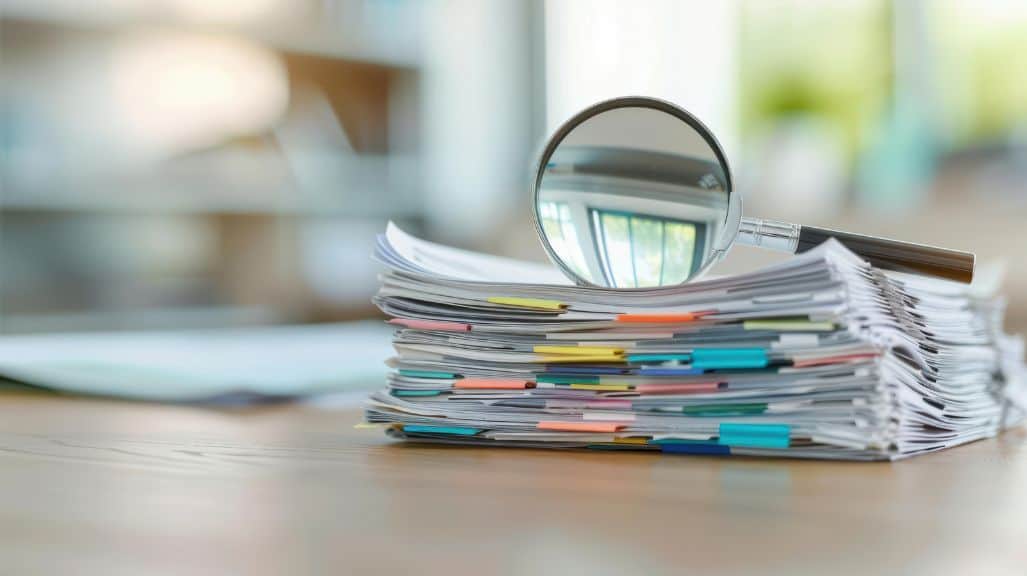Which best describes your accounting needs?

Each year, thousands of Australians lodge their tax return with the best of intentions. But did you know there is one mistake that almost guarantees an Australian Taxation Office (ATO) audit? The good news is that it is completely avoidable if you understand how the system works.
This blog will explain what causes the ATO to take a closer look at your tax return, how pre-fill data works, and what you can do to stay out of trouble. We will also cover common traps like cryptocurrency, bank interest, and health insurance reporting so you can lodge with confidence.
What is ATO pre-fill data?
Every year, the ATO collects information from multiple third-party sources. This data is then “pre-filled” into your tax return. These sources include:
-
Banks and financial institutions (interest, dividends, loan details)
-
Private health insurers (health cover and rebate entitlements)
-
Real estate agents (rental income data)
-
Employers (income statements through Single Touch Payroll)
-
Superannuation funds (contributions and balances)
-
Government agencies (Centrelink payments, Services Australia information)
-
Major cryptocurrency exchanges and wallets
When you lodge your return, the ATO automatically compares your declared figures against this data. If there is a mismatch, you are at high risk of being audited.

Why does mismatched data trigger an audit?
The ATO’s systems are highly automated. They are designed to flag any differences between your tax return and the third-party data. For example:
-
If your bank reports $350 in interest but you only declare $200, the ATO will notice.
-
If you sell cryptocurrency and do not report the capital gain, your return will be flagged.
-
If your private health insurance rebate is entered incorrectly, the ATO will question it.
In most cases, these mismatches do not automatically mean you are being dishonest. However, the ATO uses these discrepancies as a signal to investigate further.
What are the most common mistakes that trigger an ATO audit?
1. Forgetting cryptocurrency transactions
Question: Do I need to report cryptocurrency transactions to the ATO?
Answer: Yes. Cryptocurrency is treated as property for tax purposes, not as an unregulated asset. If you buy and sell crypto, you may trigger Capital Gains Tax (CGT). The ATO receives transaction reports from major crypto exchanges. Failing to declare this income is one of the fastest ways to be audited.
2. Leaving out bank interest
Question: Even if my bank interest is only a few dollars, do I need to report it?
Answer: Absolutely. Banks report every cent of interest to the ATO. If you omit it, your return will not match, which increases your risk.
3. Rental property income and expenses
Question: How strict is the ATO on rental income?
Answer: Very strict. Real estate agents report rental income and property managers report repairs. The ATO also uses data from utility companies and insurers. Overclaiming expenses or underreporting rent can result in a review or audit.
4. Private health insurance reporting
Question: Why does private health insurance matter for my tax return?
Answer: Your private health insurer provides the ATO with a statement of your cover. If your rebate claim does not match, the ATO will adjust your return, and in some cases may review it further.

Are the rules the same across Australia?
Yes. The ATO governs all Australian taxpayers regardless of which state or territory they live in. However, state-based taxes (like stamp duty and land tax) differ. For federal tax reporting such as income, crypto, and rental income, the rules are uniform across the country.
How can I avoid triggering an audit?
1. Check your pre-fill carefully
Before lodging, review your ATO pre-fill. This is usually available by late July each year.
2. Wait for all data to arrive
Many audits happen because people lodge too early. For example, bank interest and health insurance details may not be available until mid-July.
3. Keep accurate records
Maintain receipts, bank statements, crypto transaction records, and rental statements.
4. Work with a qualified accountant
An accountant can check your return against pre-fill data and help you claim deductions correctly.
Questions people often ask about ATO audits
Q: Will I definitely be audited if there’s a mismatch?
A: Not always, but your chances are much higher. The ATO uses sophisticated risk filters to decide whether to audit or adjust automatically.
Q: What if I make a genuine mistake?
A: The ATO distinguishes between errors and deliberate tax evasion. If you make a mistake, you can usually amend your return without penalty if you act quickly.
Q: How far back can the ATO audit me?
A: Generally two years for individuals, but up to four years in more complex cases. For serious tax evasion, there is no limit.
Q: Does using an accountant reduce my audit risk?
A: Yes. The ATO knows that returns lodged through registered tax agents are more accurate, so your risk of error is reduced.

Final tips to stay safe
-
Always declare all income, no matter how small
-
Do not assume the ATO will not notice cryptocurrency or “side hustle” income
-
Use ATO pre-fill as a guide but double-check your own records
-
Seek professional advice if unsure
Conclusion: Don’t fall for the low-hanging fruit
The fastest way to trigger an ATO audit is by lodging a tax return that does not match your pre-fill data. It is low-hanging fruit for the ATO because their systems automatically detect it. Whether it is forgetting a small amount of bank interest, failing to declare crypto, or misreporting rental income, the risk is not worth it.
By checking your pre-fill, keeping proper records, and working with an accountant, you can protect yourself and make tax time simple.
Speak to the experts
If you want peace of mind and to avoid unnecessary ATO audits, speak with Latitude Accountants today. Our experienced team can review your pre-fill data, ensure every deduction is maximised, and lodge your return correctly the first time.
Contact Latitude Accountants today for smart, practical advice tailored to your situation.
📞 Contact Latitude Accountants
📧 info@latitudeaccountants.com.au
🌐 www.latitudeaccountants.com.au
Disclaimer
This information is general in nature and does not constitute financial or tax advice. Legislation and policies may change and individual circumstances vary. Always consult a registered tax agent or the ATO for advice specific to your situation.
Follow us on social
Need an accountant?
